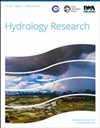CERCA (Cascading Effects in Risk Consequences Assessment): an operational tool for geo-hydrological scenario risk assessment and cascading effects evaluation
IF 2.4
4区 环境科学与生态学
Q2 Environmental Science
引用次数: 1
Abstract
Building multiple, complex risk scenarios is a priority for the improvement of the effectiveness of early warning systems and technical countermeasure designs to detect phenomena associated with severe weather events, such as floods and landslides. This study presents CERCA (Cascading Effects in Risk Consequences Assessment), a methodology for the characterisation of event scenarios that is consistent with the current Italian Civil Protection Guidelines on the national warning system for weather-related geo-hydrological and hydraulic risks. The aim is to propose a simple, effective, multi-scale operational tool that can be adapted to multiple purposes. CERCA is structured as a tool for a typical ‘scenario analysis’ in a multi-hazard context through the qualitative assessment of cascading effects and consequences for different categories of elements at risk, particularly in terms of human losses. The framework is assessed on a case study concerning a local event in Rossano (Calabria, Italy) and on a number of damaging events that occurred in Italy during the period 2004–2021. The proposed approach can be effective in processing post-disaster information, monitoring the real-time evolution of critical situations, creating priority lists for decision-making, and providing general dependency matrices to be used for ‘ex-ante’ definitions of scenarios.CERCA(风险后果评估中的级联效应):用于地质水文情景风险评估和级联效应评估的操作工具
建立多种复杂的风险情景是提高预警系统和技术对策设计的有效性的优先事项,以检测与洪水和山体滑坡等恶劣天气事件相关的现象。本研究介绍了CERCA(风险后果评估中的级联效应),这是一种描述事件情景的方法,符合当前意大利关于天气相关地质水文和水力风险国家预警系统的民事保护指南。其目的是提出一种简单、有效、多尺度的操作工具,可用于多种目的。CERCA的结构是作为一种工具,通过对不同类别风险要素的级联效应和后果进行定性评估,特别是在人员损失方面,在多危险背景下进行典型的“情景分析”。该框架是根据一项关于罗萨诺(意大利卡拉布里亚)当地事件的案例研究和2004年至2021年期间意大利发生的一些破坏性事件进行评估的。所提出的方法可以有效地处理灾后信息,监测关键情况的实时演变,创建决策优先顺序列表,并提供用于情景“事前”定义的通用依赖矩阵。
本文章由计算机程序翻译,如有差异,请以英文原文为准。
求助全文
约1分钟内获得全文
求助全文
来源期刊

Hydrology Research
Environmental Science-Water Science and Technology
CiteScore
5.30
自引率
7.40%
发文量
70
审稿时长
17 weeks
期刊介绍:
Hydrology Research provides international coverage on all aspects of hydrology in its widest sense, and welcomes the submission of papers from across the subject. While emphasis is placed on studies of the hydrological cycle, the Journal also covers the physics and chemistry of water. Hydrology Research is intended to be a link between basic hydrological research and the practical application of scientific results within the broad field of water management.
 求助内容:
求助内容: 应助结果提醒方式:
应助结果提醒方式:


